This content was deleted by the author. You can see it from Blockchain History logs.
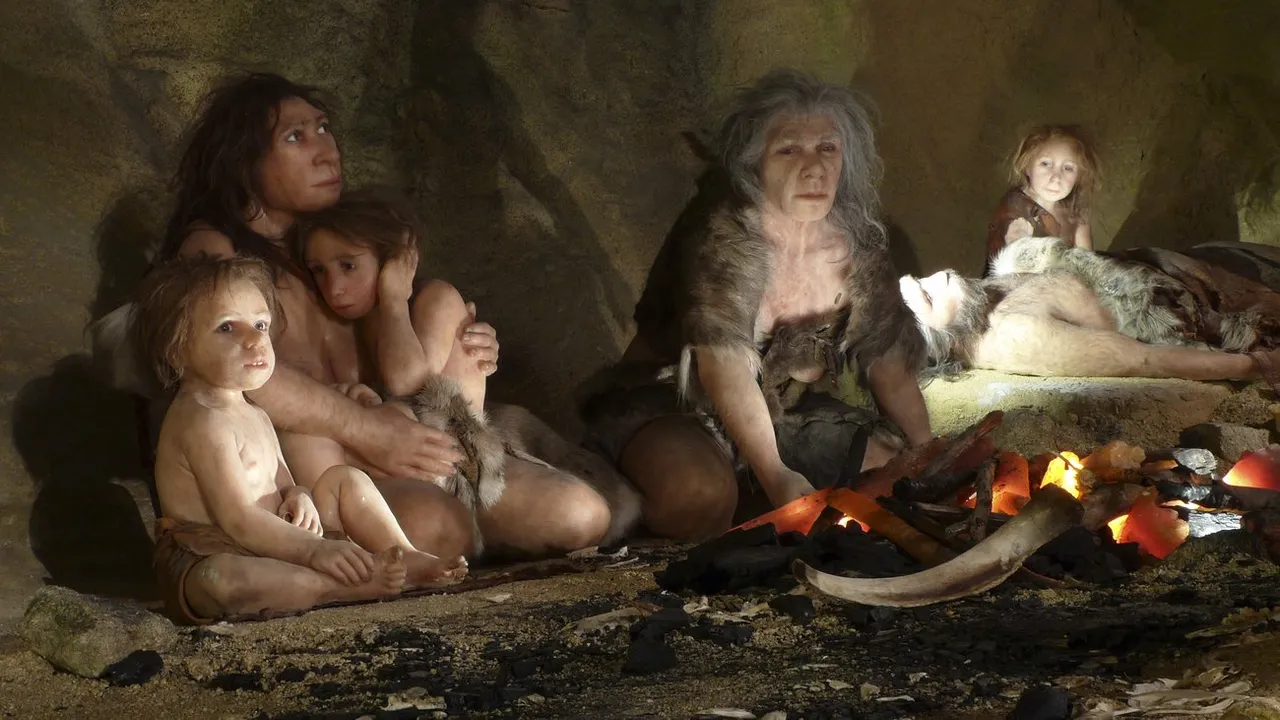
Source
Some years ago I heard a professor from the university enunciate an interesting phrase. He told us during a class that the history of humanity began at the exact moment when man began to bury his dead. I've thought about that idea a lot since then. Why does the history of man begin precisely with that act? In my opinion a possible answer can be seen in the ceremony and the rite that this fact implied, I explain myself better:
First, the man wished to honor his dead. Say goodbye and do not simply leave the corpse to decompose on the ground. That made us different from the animals.
In man arose the need to make more sense of death. See it not as the end of the road but as an encounter with another reality. The burial ceremony became an initiation into the afterlife.
He created the cult of death as part of his beliefs, which is nothing more than the beginning of the concept of religion.
He made the sacred space (rudimentary cemetery). A special place for the rites to which return periodically. A meeting place that contrasted with the nomadic characteristic of the first towns. It has always been common for cities to be built around a cemetery.
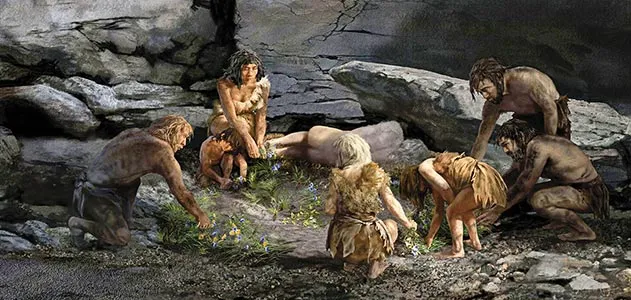 Source
Source
Whatever the reason, with this act a transcendental part of humanity was initiated, the interaction, through the mortuary ceremony and the rite, of the human being with death began.
Historically rituals have been a very important part of the life of man. Magico-religious beliefs have even influenced the evolution and forms of human interaction since the beginning of time.
Through the centuries man worshiped nature and its forms. He found divinity in water and fire, in the moon and the sun, in spring and in the solstices of winter and summer. The sacred took form in the elements and the rite was nourished and grew as it spread.
Anthropological studies throughout the entire planet have shown many forms of ritualization used by men thousands of years ago.
After some time emerged the deities closest to humanity in both the physical aspect and behavior. The great pantheons of gods appeared and the worship of deities was established by zones or cities. Then the human interaction caused the same deities to expand to other territories, acquiring even new qualities and characteristics as they reached new places.
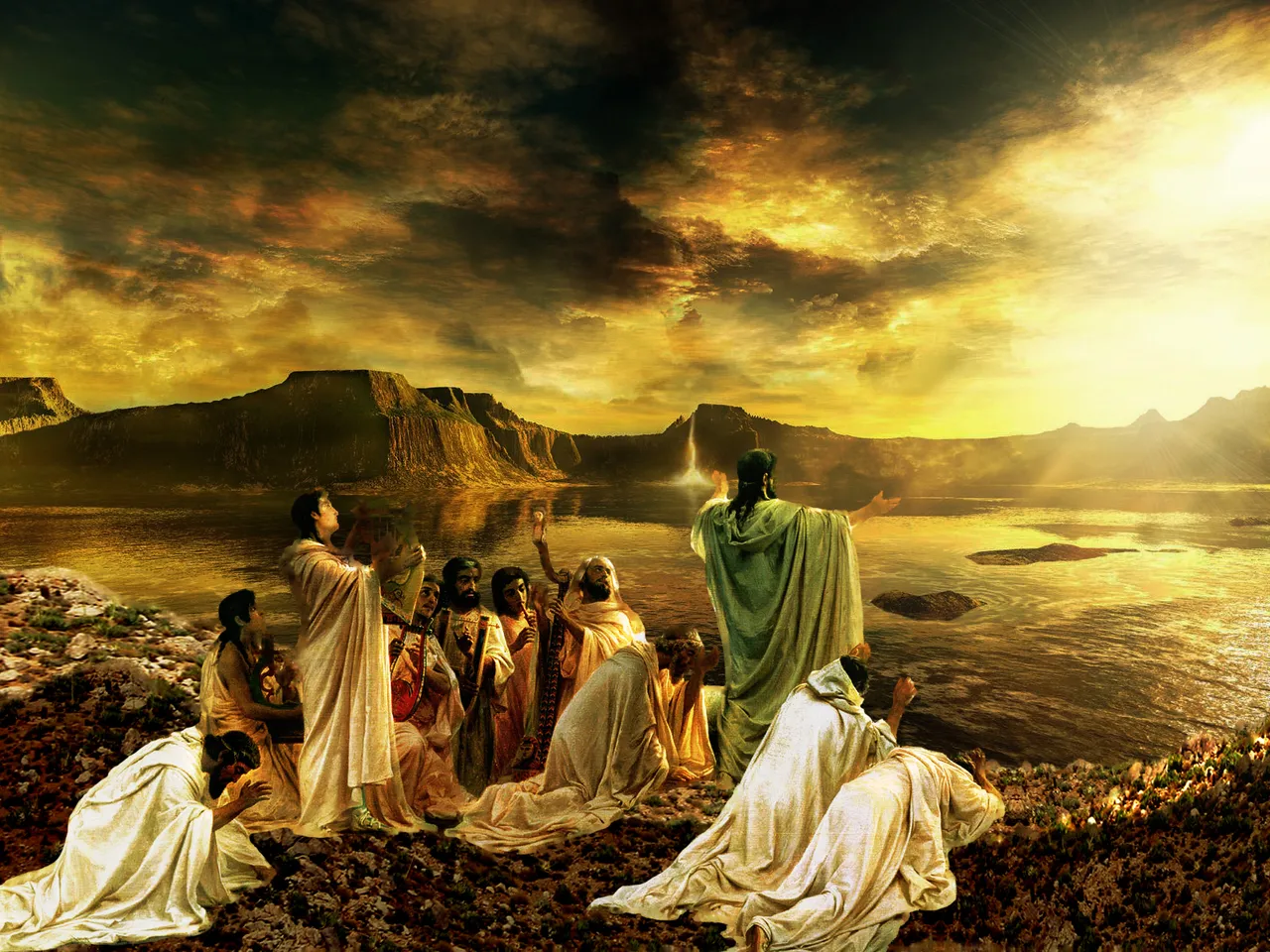
Source
What are myths?
Myths are narrations that refer us to the origin of men and their beliefs. They have a fantastic character because they tell us supernatural explanations of facts or phenomena of nature.
The space and time in which the story of the myth occurs is sacred. It is an anonymous and collective story that expands orally. This collective character makes the myth always consists of several versions.
It is very common for the myth to tell us the story of the great gods and how they arose. The myth tell us what is the origin of the world, of life and of men.
It is important to emphasize that the real meaning of a myth is usually unconscious. We must be able to study and understand the symbology that surrounds it to be able to decipher the true teaching that it contains. It is not so easy to understand them fully, but to do so is a unique and enriching learning exercise.
Example of a recognized myth.
The myth of Prometheus.
Prometheus was a Titan protector of humanity who devoted much of his efforts to teaching men to be better and civilized. After a punishment of Zeus to the men, who denied them the knowledge of the fire, Prometheus dared to steal it and deliver it to humanity for their benefit.
Zeus in revenge forged a plan with other gods and sent a woman named Pandora to punish Prometheus and the men. Pandora married Epimetheus (brother of Prometheus). She received as a gift a box full of terrible evils that should never be opened.
Pandora fulfilled the destiny for which it was created and at a certain moment opened the box. The evils that it contained spread throughout the world. I try to repair his mistake and close the jar before everything comes out, but it was too late, only hope was left inside. Prometheus was imprisoned and cruelly punished by Zeus.
Prometheus was chained to a rock where every day an eagle devoured his liver and each night the organ that lost was regenerated again. The terrible punishment became infinite in this way.
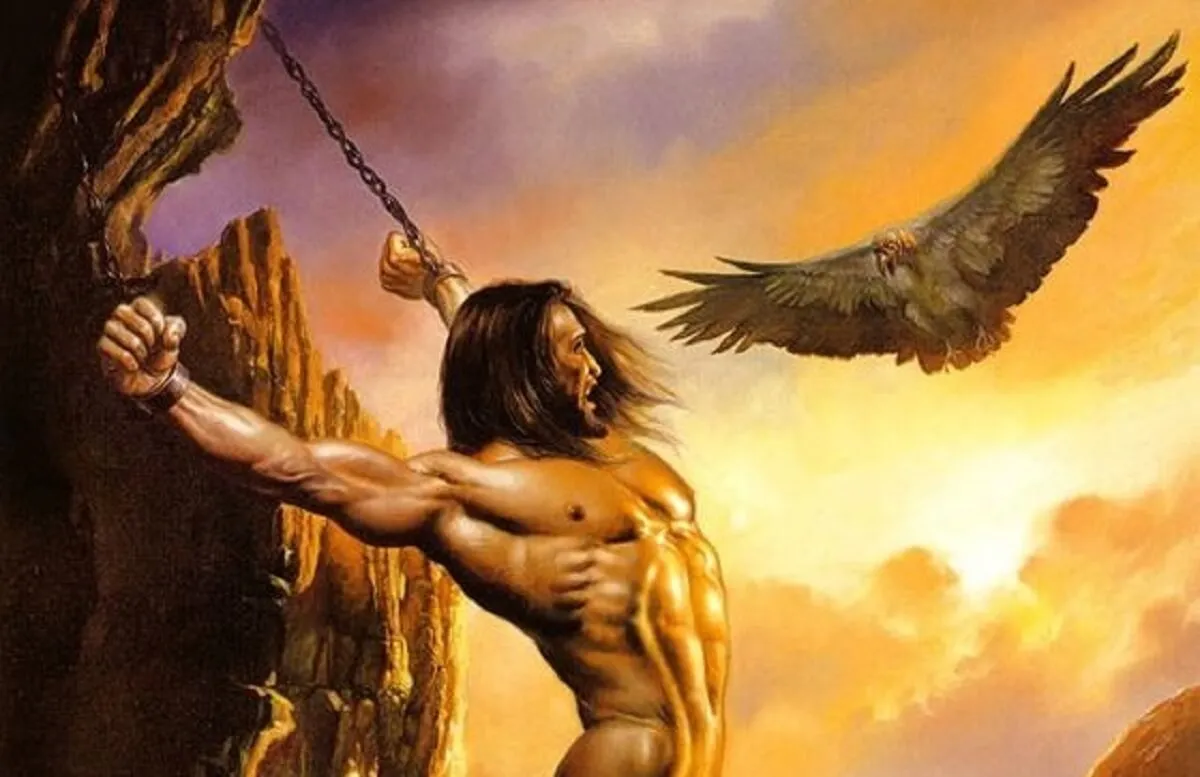
Source
What are the archetypes?
An archetype is a prototypical pattern, that is, a deep and basic model that serves to mold behaviors and personalities. It is a concept, a set of ideas and knowledge from which others derive, and which help to define the personality of human beings. The archetypes inhabit the collective unconscious of the human being according to the society in which it develops.
I recognize my friends readers that it is a concept a bit difficult to appreciate the first time, but let me try to dig a little deeper.
The Swiss author Carl Gustav Jung was one of the greatest scholars of the concept of archetypes. For Jung, the archetypal images are contained in the unconscious of modern man that resemble the ideas and concepts of primitive man. The human mind evolved over the centuries, but it continued to maintain primitive vestiges. According to the author, these images are as instinctive as the ability of birds to migrate, or the ability of ants and bees to organize themselves and perform their survival tasks.
I quote this well-known phrase of Jung:
"Archetypes: forms or collective images that occur throughout the earth as constitutive elements of myths and, at the same time, as indigenous and individual products of unconscious origin"
In summary, an archetype is a model that represents one or several ideas. They are patterns of symbol formation that have appeared throughout the history of man and in all cultures. I will present some examples:
Examples of archetypes
• The archetype of the Hero is the representation of the warrior that shows courage and strength, as well as arrogance and competitiveness. For example Achilles and Odysseus.
• The archetype of the Father is the representation of a figure of authority and protection. It is the firm and hard hand, order and productivity. A classic example is the kings of children's stories.
• The archetype of the Mother represents the unconditional and compassionate love that takes care of us physically and emotionally. For example fairy godmothers of the stories.
• Romeo and Juliet are the archetype of tragic and eternal love. Of hatred between families.
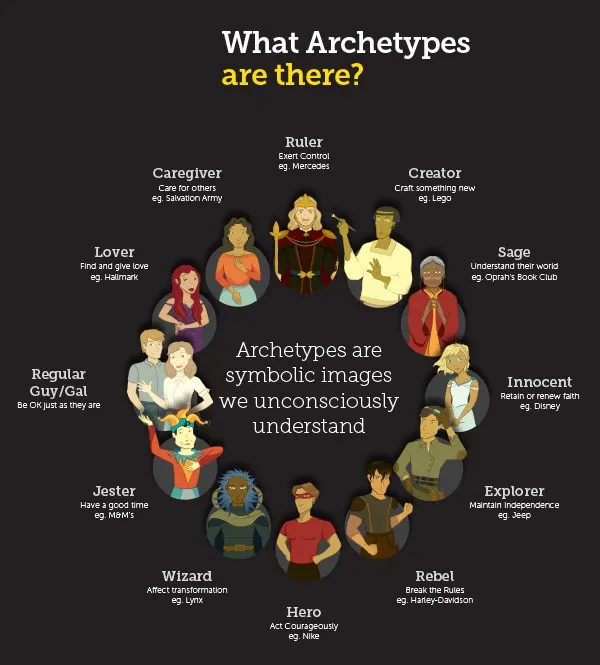 Source
Source
The Greek archetypes.
Let's do a mental exercise, dear readers and be able to move for a moment to the antiquity. Imagine that we are women and men walking through a square in ancient Greece. We are in the agora of a growing city. In a few steps, a remarkable master of philosophy tells his students the incredible feats of great Greek heroes, and the remarkable influence of the gods who for good or evil intervened in their adventures. Let's think that those stories did not happen long ago, we could even have witnessed the events, very likely to be real. Then continue with our walk back, think about how the knowledge we just acquired will influence our future behavior. Let's get to our destination, the entrance of a house, let's go over the threshold and go back to our time. Imagine how those stories shaped the behaviors of Greek citizens for centuries. Alexander the Great always wanted to live like a legendary warrior imitating the mythical Achilles.
We can affirm that the heart of the Greek civilization was the wealth of a religion and a belief system rich in knowledge and teachings. What we call Greek mythology for them was their truth, their religion, their point of interaction with the divinity and the secrets of the world they inhabited. They were a philosophical culture where thought and its aspects occupied a primordially civilizing place. Great civilizations like the Romans recognized the profound value of Greek religion and decided to adopt it as their own.
As all ancient religion began through orality, oral literary tradition. He moved from one generation to another until he became immortalized by the great and incipient poets of his time. The teachings survived wars, cultural conflicts and natural events. They ended up getting rich with the same events they survived. The final product is extraordinary, it is the very essence of a whole culture and a people like few others. The Greeks managed to make eternal a religion that today is a rich mythology that has maintained a marked and remarkable influence in world culture.
The basis of Greek mythology is based on an extensive pantheon of gods and fantastic creatures. All respond to different origins and situations. His creations go back to epochs and dissimilar geographic zones, but all are part of an amalgam of deities and situations as rich as diverse. Myths with multiple versions or variable elements depending on the area where it is related.
The Greek deities are characters with very marked and unique characteristics. They are archetypes of great symbolic richness that give life and form to innumerable myths. Since its expansion they are part of the human psyche.
Titans, gods, satyrs, nymphs and heroes are part of the network of beings that make up this mythology. His images are so ancient and primitive that they undoubtedly have the title of archetypes. Zeus is the most famous archetype, a clear model of behavior and form of thought. Since then, there have been many characters in literature inspired by their actions. But the list is long: Apollo, Athena, Hera, Dionysus, Poseidon, Cronus and Hades are other powerful archetypes that have shaped personalities and characters of history for centuries. There are many Greek archetypes that we could study, some more famous than others, each important in its own way. All occupy a primordial place in the collective unconscious, at least in Western culture.
The most important feature in analyzing the Greek gods from the archetypal point of view is the humanity that defines them. Although they are divine beings, mostly immortal and powerful, they possess innumerable human qualities that they project within their scope and social scheme. These deities reflected virtues and defects of human nature. A human being can perfectly be reflected in the way the Greek gods act in their stories.
I will finish this post by pointing out that it was created as an introduction to a topic that has always fascinated me, Greek mythology. I have decided to create a series of articles from many different points of view. A Greek deity can be studied from history, psychology, literature, psychoanalysis, esotericism, religion. The creativity of the human being has always been able to accommodate the symbolic richness that it contains. It will be a long-term task, so I hope you like the idea.
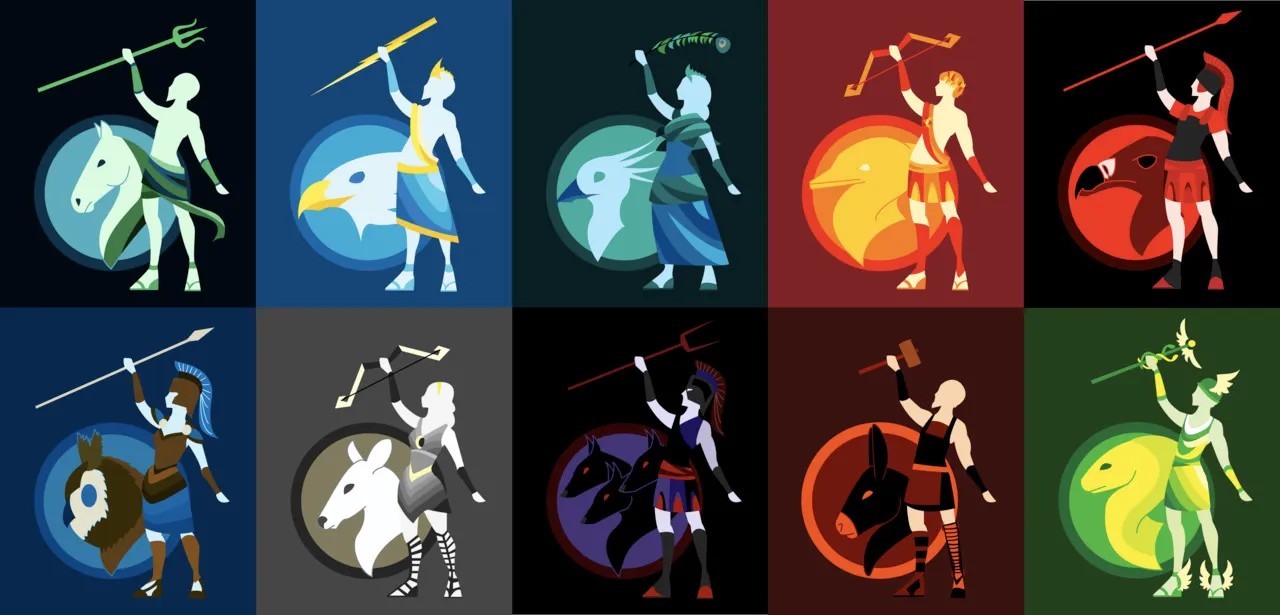
Source
Thank you for reading me, greetings to everyone.





